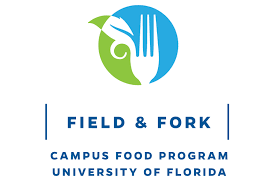Cooking on a Budget
College students may not have the time or equipped kitchens for elaborate cooking and often need to eat on a budget. Many students have rarely cooked before entering college; however, cooking at home is often the least expensive way to eat. There are many low-cost, quick, and healthy recipes that require little skill.
To get started, check out some recipes from UF’s Field and Fork Campus Food Program and the following cooking on a budget videos and tips:
View “Adaptable Frittata” video on YouTube
View recipe for “Adaptable Frittata”
View “Adaptable Soup” video on YouTube
View recipe for “Adaptable Soup”
Seasonal Eating
The reason why berries are very affordable during some months and expensive in others is that it is harder to grow out of season fruits (and veggies). Often the fruits and veggies you are buying come from very far away. To help support our local food economy and help your budget, learn what is in season and choose these ingredients for your meals. You can learn more about what’s in season in Florida or check out your local farmers markets!
Another quick tip – when you find fresh, seasonal produce that you love, consider buying extra to freeze some so you can eat local all year. Here is a quick tutorial on how to store and freeze most veggies!
Whole Grains and Legumes
Whole grains and legumes can be very inexpensive but provide lots of filling protein and fiber that can really bulk up a meal for minimal cost. Look for dried beans and soak and cook enough for the whole week with a simple broth or water base, then you can add different seasonings to change up your meals. For example – black beans can be transformed into tacos one night, a chili the next night, and then become part of a fun filling or topping for roasted sweet potatoes another. Black Bean Stuffed Sweet Potatoes recipe.
Be Prepared
When you’re not prepared, you are much more likely to run to the store and buy prepared foods that cost more, and often these foods have added salt, fats and sugar. Even pre-cut foods cost much more than preparing them yourself. By putting together a meal plan and prepping things in advance, you save time and money. Try getting all your veggies and bases for food prepped and cooked on Sunday, then its easy to mix and match grab and go meals when you’re busy during the week. For example, pick your favorite veggies and cut and pack them in snack sized portions to enjoy with a quick batch of hummus for a healthy, filling, inexpensive snack for the week. Add a wrap and some feta or your favorite cheese and you have a balanced lunch! Mediterranean Veggie Wrap recipe.
Love Leftovers
Cooking at home not only saves you money, but it means you will likely have leftovers that can be turned into many new meals in the days ahead. For example, if you have leftover meat or veggies, they can get chopped and added to some scrambled eggs with your favorite cheese for breakfast. Chop up last night’s sweet potato and grab some pecans or walnuts to add to a salad. A baked potato can become potato pancakes or intentionally make a meal that will yield lots of options (for example, a roasted chicken can become chicken salad, burritos, a stir-fry, or curry… the options are endless).
More Tips
- Eat before you go grocery shopping if possible to avoid buying extra foods.
- Make a meal plan and grocery list and stick to it.
- Save/freeze veggie scraps for later to add to other meals like soup or to make a vegetable stock. You can do this with bones from meats as well.
- Store brands are usually cheaper.
- Buy spices from bulk aisle, especially if used rarely.
- Go meatless a few times per week (plant proteins usually cheaper than animal proteins).
- Pay attention to sales cycles and flyers.
- No store has the best deal on everything, shop at multiple places if you can.
- Chop and freeze herbs in ice cube trays, then store in ziplock bags in the freezer so you have herbs on hand instead of having to buy dried.
- To get the most out of your food and prevent waste, learn proper food storage to make your food last.
- Do your own prep work as convenience comes with a cost, usually to your pocketbook and calories. Processed foods often have more added fat, sugar and salt.
- If you like eating ethnic foods often, shop at stores and markets that feature these items. They usually have international food staples available at much lower prices than large grocery stores.


